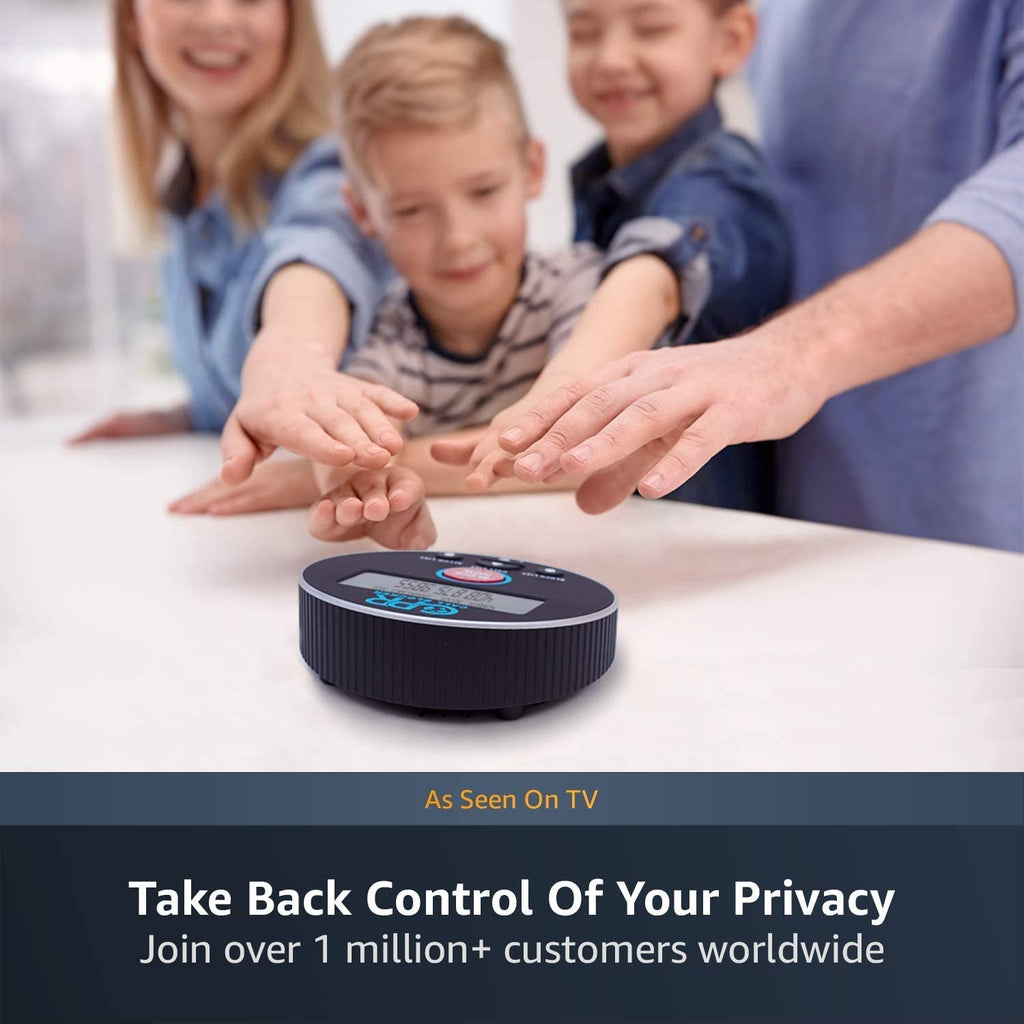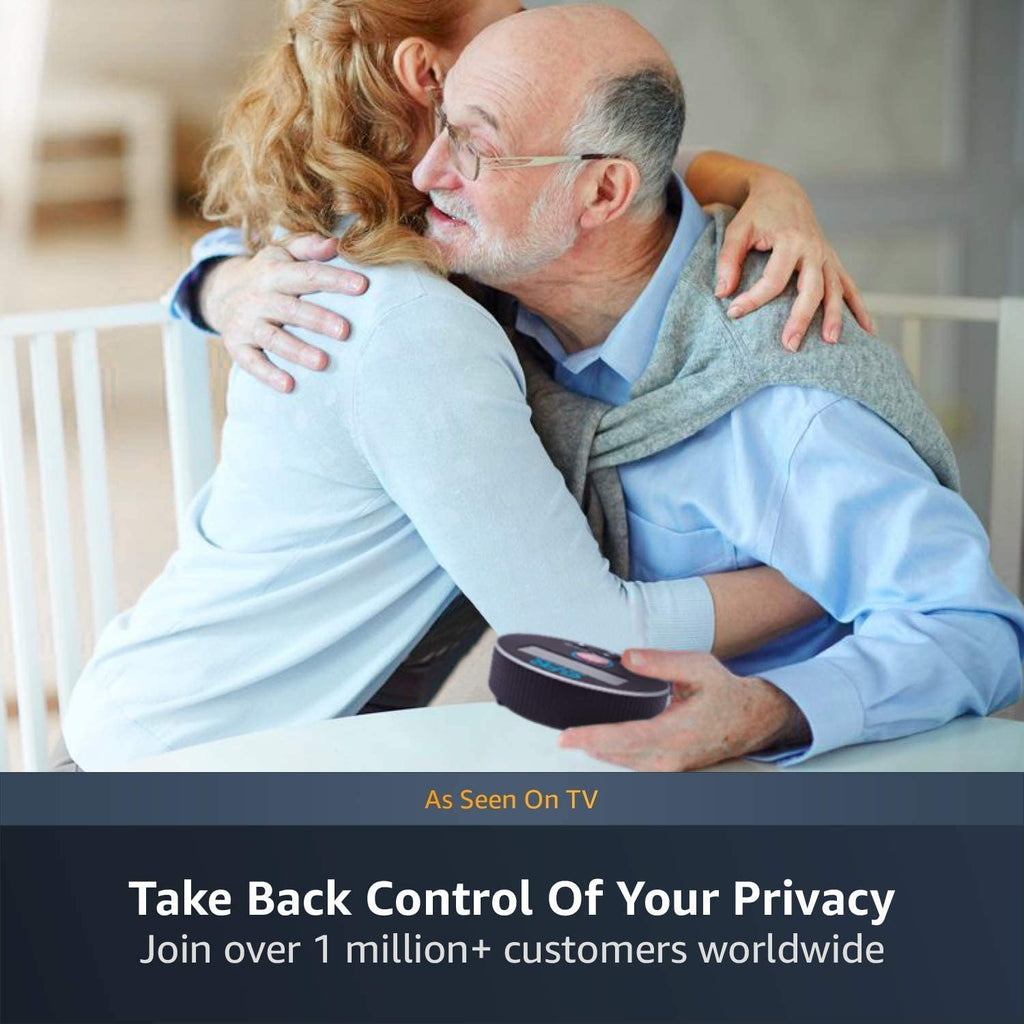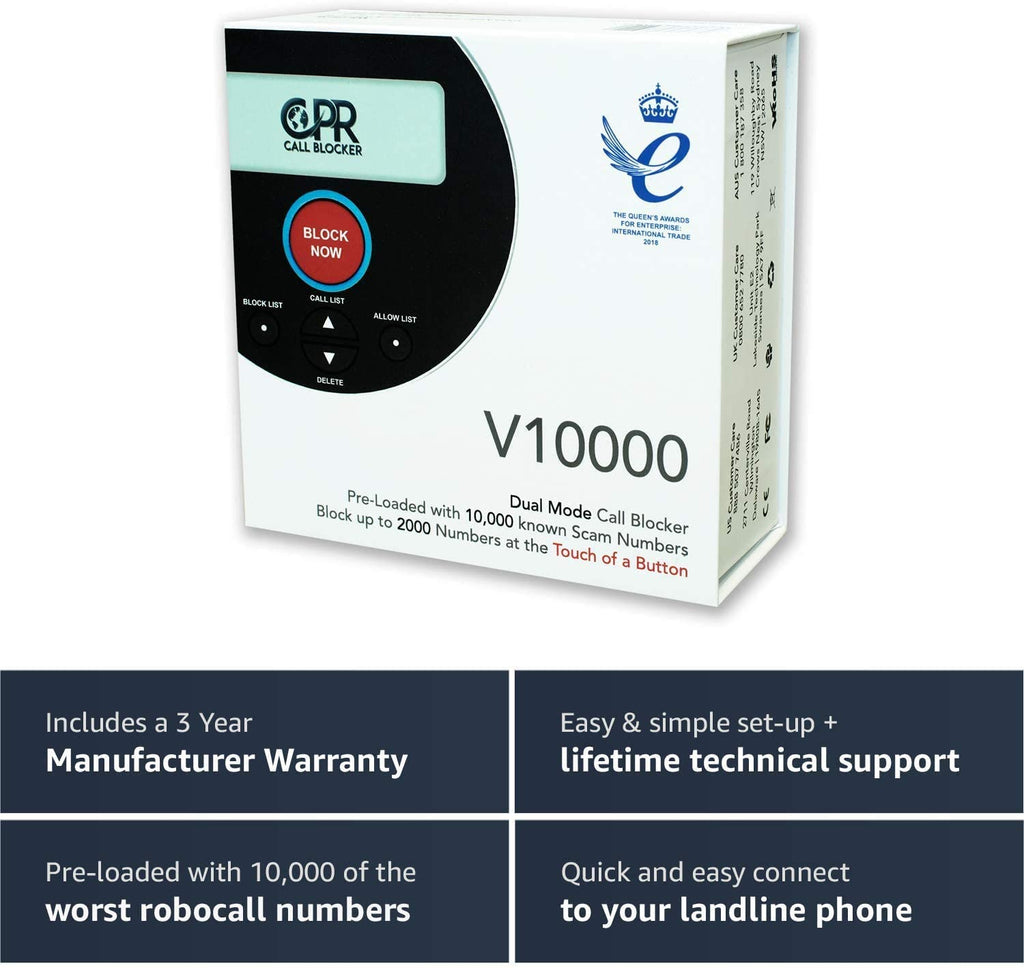In today's digital age, patient privacy is paramount in the healthcare industry. With the increasing prevalence of telecommunication, protecting sensitive patient information from unauthorized access and potential scams is more critical than ever. One effective tool in safeguarding patient privacy is the utilization of call blockers.
In this blog, we will explore the importance of call blockers in the healthcare sector and how they contribute to maintaining patient confidentiality.

Understanding the Role of Call Blockers
Call blockers, called screening devices, are technology solutions designed to filter and block unwanted calls, including robocalls, spam, and fraudulent solicitations. These devices analyze incoming calls and identify suspicious patterns or known spam numbers, preventing them from reaching the intended recipient.
Importance of Call Blockers in Healthcare
In the healthcare industry, protecting patient privacy is not only a legal requirement but also an ethical obligation. Unauthorized access to patient information can lead to serious consequences, including identity theft, fraud, and compromised medical records. Call blockers are crucial in mitigating these risks by preventing unauthorized parties from accessing sensitive patient data.
The healthcare sector is particularly vulnerable to targeted attacks due to the nature of the information handled, including personal identifiers, medical history, and insurance details. Malicious actors often exploit vulnerabilities in communication channels to obtain this information for illicit purposes. Healthcare organizations can proactively defend against such threats and uphold patient confidentiality by implementing call blockers.
Protecting Patient Privacy
Ensuring patient confidentiality is a fundamental aspect of healthcare ethics and regulatory compliance. Call blockers help prevent unauthorized access to patient information, safeguard sensitive data from potential breaches, and protect individuals' privacy rights.
Preventing Identity Theft
Healthcare records contain a wealth of personal information, making them prime targets for identity thieves. Call blockers help mitigate identity theft risk by blocking suspicious calls to gather sensitive personal data from unsuspecting individuals.
Mitigating Fraudulent Activities
Fraudulent activities, such as phishing and insurance fraud, pose significant threats to patients and healthcare providers. Call blockers can identify and block calls from known scam numbers, reducing the likelihood of patients falling victim to fraudulent schemes.
Maintaining Regulatory Compliance
Compliance with healthcare regulations, such as HIPAA in the United States, is crucial for healthcare organizations. Call blockers assist in meeting regulatory requirements by implementing additional layers of security to protect patient information from unauthorized access and disclosure.
Enhancing Trust and Reputation
Patient trust is essential for maintaining a positive reputation and fostering long-term relationships with healthcare providers. By implementing robust privacy measures like call blockers, healthcare organizations demonstrate their commitment to protecting patient confidentiality and enhancing trust and confidence among patients and the broader community.

Benefits of Call Blockers in Healthcare
Call blockers help mitigate the risk of fraudulent activities such as phishing scams and identity theft by blocking suspicious calls before they reach healthcare professionals or patients.
Reduced Risk of Phishing Scams
Call blockers proactively identify and block suspicious calls, including those attempting to perpetrate phishing scams. By preventing these calls from reaching healthcare professionals or patients, call blockers significantly reduce the risk of sensitive information being compromised through fraudulent means.
Prevention of Identity Theft
Identity theft is a pervasive threat in the healthcare sector, where personal and financial information is highly sought after by malicious actors. Call blockers help thwart attempts at identity theft by blocking calls from known scam numbers and unauthorized sources, safeguarding patient data, and preventing individuals from falling victim to fraudulent schemes.
Enhanced Security and Confidentiality
Healthcare organizations bolster their security posture and reinforce patient confidentiality by implementing call blockers. The ability to filter out unwanted calls ensures that only legitimate communications are received, reducing the likelihood of unauthorized access to sensitive medical information and maintaining the integrity of patient records.
Improved Operational Efficiency
Nuisance calls and unsolicited solicitations can disrupt workflow and detract from the efficiency of healthcare operations. Call blockers alleviate this burden by filtering out unwanted calls, allowing healthcare professionals to focus on their core responsibilities without interruption. This leads to improved productivity and streamlined communication processes within healthcare settings.
Compliance with Regulatory Standards
Healthcare providers are subject to stringent regulatory requirements, such as HIPAA, that mandate the protection of patient information and privacy rights. By deploying call blockers, healthcare organizations demonstrate their commitment to compliance with these regulations, ensuring that patient data is handled securely and by legal obligations. This proactive approach to data security helps mitigate the risk of regulatory penalties and maintains the trust of patients and stakeholders in the healthcare system.

Implementing Call Blockers in Healthcare Settings
Integrating call blockers into existing communication infrastructure is a relatively straightforward process. Healthcare organizations can deploy dedicated call-blocking solutions or leverage integrated features offered by modern phone systems and telecommunications providers. Additionally, staff training and awareness programs are essential to educate employees about the importance of call blockers and how to utilize them in their daily operations effectively.
Deploy Dedicated Blocking Solutions
Healthcare organizations can invest in dedicated call-blocking devices or software solutions to block unwanted calls. These solutions typically offer advanced features such as customizable blocklists, call screening options, and real-time monitoring capabilities to filter out spam and fraudulent calls effectively.
Utilize Integrated Features in Phone Systems
Many modern phone systems and telecommunications providers offer integrated call-blocking features as part of their service offerings. Healthcare organizations can leverage these built-in features to block unwanted calls directly from their existing communication infrastructure, eliminating the need for additional hardware or software investments.
Customize Blocklists and Whitelists
To tailor call blocking functionality to their specific needs, healthcare organizations can create custom blocklists and whitelists. Blocklists contain numbers known to be associated with spam or fraudulent activity, while whitelists include trusted numbers that should always be allowed through. This customization ensures that only desired calls are received while blocking unwanted communications effectively.
Implement Staff Training and Awareness Programs
Educating employees about the importance of call blockers and how to utilize them effectively is crucial for successful implementation. Healthcare organizations should conduct training sessions and awareness programs to familiarize staff with the features and functionalities of call-blocking solutions and best practices for identifying and handling suspicious calls.
Monitor and Evaluate Effectiveness
Continuous monitoring and evaluation are essential to assess the effectiveness of call-blocking measures and make necessary adjustments over time. Healthcare organizations should regularly review call logs, analyze blocked calls, and solicit feedback from staff to identify any emerging patterns or areas for improvement.
By staying proactive and responsive to evolving threats, healthcare providers can maintain robust call-blocking capabilities and ensure the ongoing protection of patient privacy.

Conclusion
Call blockers are pivotal in safeguarding patient privacy in the healthcare industry. By effectively filtering and blocking unwanted calls, these devices help prevent unauthorized access to sensitive patient information and mitigate the risk of fraudulent activities. As healthcare organizations prioritize data security and privacy, integrating call blockers into their communication strategies is essential to uphold patient confidentiality and maintain trust in the digital age.
Please browse our selection of products or contact us so we can assist you.



